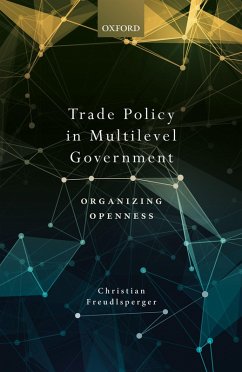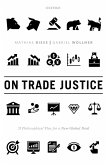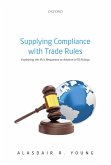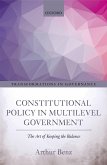Trade Policy in Multilevel Government investigates how multilevel polities organize openness in a globalizing political and economic environment. In recent years, the multilevel politics of trade caught a broader public's attention, not least due to the Wallonian regional parliament's initial rejection of the EU-Canada trade deal in 2016. In all multilevel polities, competencies held by states and regions have increasingly become the subject of international rule-setting. This is particularly so in the field of trade which has progressively targeted so-called 'behind the border' regulatory barriers. In their reaction to this 'deep trade' agenda, constituent units in different multilevel polities have shown widely varying degrees of openness to liberalizing their markets. Why is that? This book argues that domestic institutions and procedures of intergovernmental relations are the decisive factor. Countering a widely-held belief among practitioners and analysts of trade policy that involving subcentral actors complicates trade negotiations, it demonstrates that the more voice a multilevel polity affords its constituent units in trade policy-making, the less the latter have an incentive to eventually exit from emerging trade deals. While in shared rule systems constituent unit governments are directly represented along the entirety of the policy cycle, in self-rule systems territorial representation is achieved merely indirectly. Shared rule systems are hence more effective than self-rule systems in organizing openness to trade. The book tests its theory's explanatory power on the understudied case of international procurement liberalization in extensive studies of three systems of multilevel government: Canada, the European Union, and the United States.
Dieser Download kann aus rechtlichen Gründen nur mit Rechnungsadresse in A, B, BG, CY, CZ, D, DK, EW, E, FIN, F, GR, HR, H, IRL, I, LT, L, LR, M, NL, PL, P, R, S, SLO, SK ausgeliefert werden.









